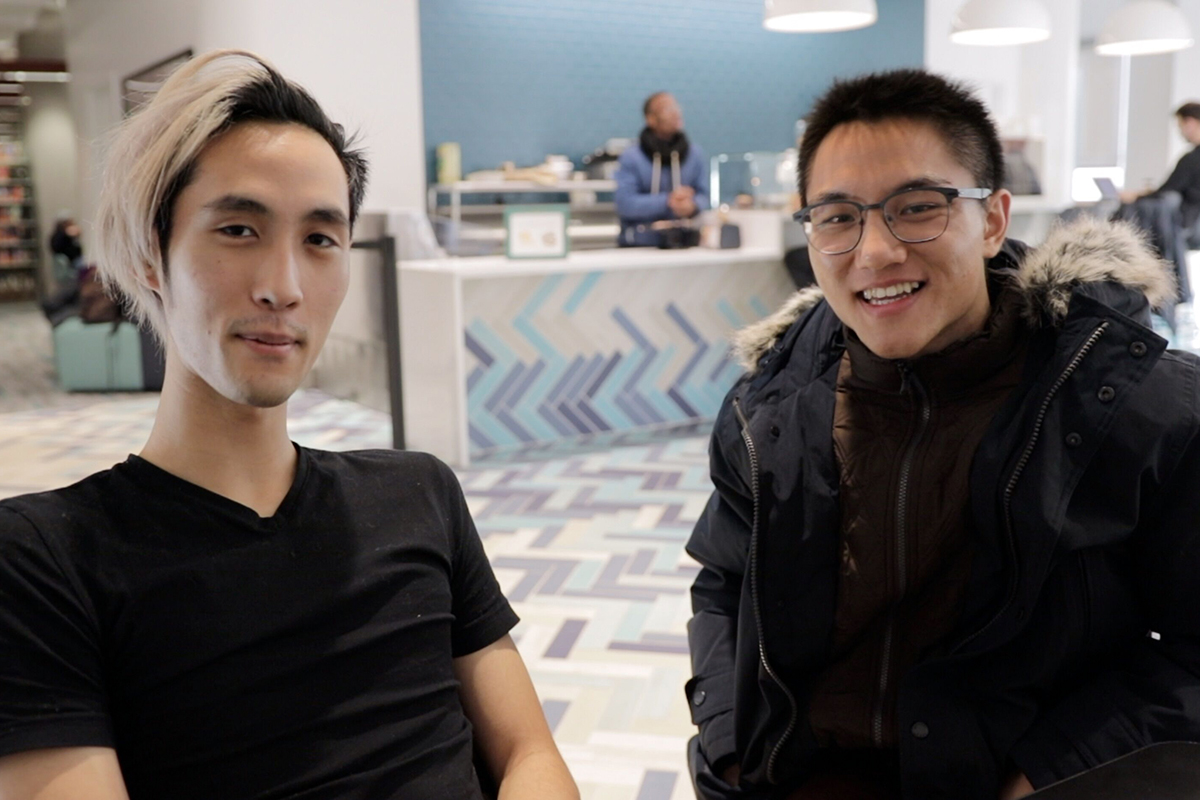Hojung Kim and Kevin Zhen

When Hojung Kim ’14 learned that nearly half of all meals in the United States are eaten alone, the 22-year-old entrepreneur could almost taste the business opportunity to do well and to do good.
“I’m personally dedicated to solving the problem of social isolation in the way that’s closest to my heart,” Kim says, “by bringing people together through food.”
In 2017, Kim, who personally struggled with feelings of loneliness, took time off from his studies at the University of Chicago to develop a smartphone app that would do just that — organize small group meals at the homes of local chefs, amateurs or pros, that would be inclusive and supportive. He reached out first to longtime friend Kevin Zhen ’16, an undergrad at Yale. Kim and Zhen were dormmates in Cilley Hall and previously collaborated on a venture to bring wind energy to rural areas in developing countries. But when Kim floated his latest idea, “I told him in these exact words, ‘That’s the dumbest idea ever,’” Zhen recalls. “And thought that was the end of it.”
Kim didn’t take no for an answer and registered Zhen to give a one-minute pitch at Yale’s entrepreneurship night. “At first I was pretty mad,” Zhen says, “but then the idea clicked for me and the audience loved it.” Buoyed by the positive reaction, Zhen and Kim put together a business concept and applied to Yale’s Tsai Center for Innovative Thinking summer program. Their efforts earned them a spot in the accelerator as well as a $15,000 seed grant. Six months later, they launched their pop-up dining app, Homecooked, in New Haven, Connecticut. We invited the co-founders to our table to discuss the startup experience.
What’s it like to be an entrepreneur?
Kim: For us, being an early-stage startup seeking funding and finding our footing, it involves a lot of learning and growing. Kevin started learning [user interface/user experience] design. I took a crash course in accounting to put together our financial statements.
What’s the biggest roadblock you’ve faced so far?
Kim: Critical mass is always a huge challenge. For multi-sided platforms, critical mass is the point where the marketplace’s network effects start driving growth by themselves. Before that point, we have to drive growth as much as we can.
Zhen: And the personal challenges are no joke either. Startups are stressful by their nature, and they can amplify personal conflicts. Hojung and I have had a lot of tough moments where we’re at odds over direction or decisions, but we always come back stronger for it.
Do your different styles complement each other?
Zhen: We call ourselves Yin and Yang. We’re actually completely opposite people — who we are, how we act, how we think. It definitely has us clashing at times, but helps us innovate through diametrically opposed creative differences.
What’s one key to success?
Kim: I took my entire junior year off of college to work on my first startup and compete on the professional squash world tour. I was not good enough to play professionally at the outset, but I quickly improved and started competing well enough to win a couple of matches and achieve a world ranking of 342. That experience cemented this idea that skill or achievement had little to do with natural talent and everything to do with hard work and effort.
— Jennifer Wagner
Editor’s note: This article first appeared in the spring 2019 issue of The Exeter Bulletin.


